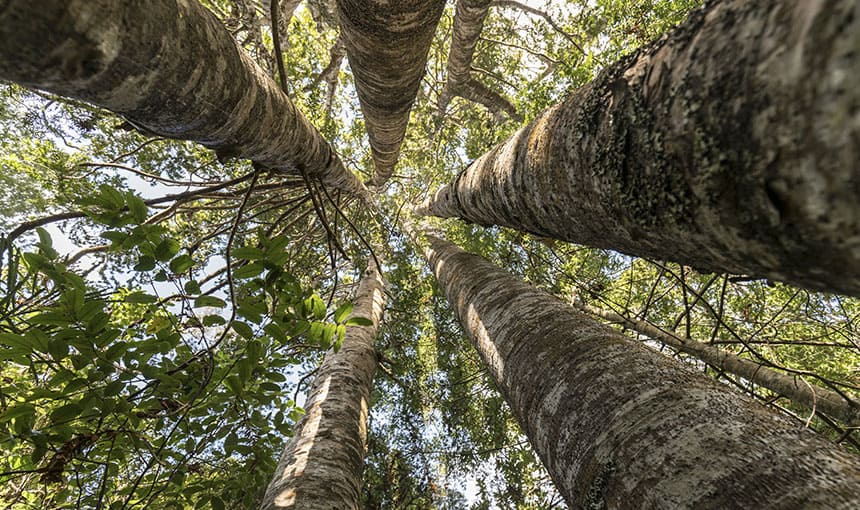
Kauri Rescue is a is an award-winning citizen science project that works with members of the public to refine tools for the treatment of kauri dieback – a disease that has killed possibly thousands of the taonga (treasured) trees.
Supported by the BioHeritage Challenge, the programme involves participants injecting kauri with phosphite – a treatment that is successfully reducing the impact of the disease. As part of this, they’re actively working with Māori communities to use traditions and practices to inform solutions that may fight kauri dieback.
Social scientist Dr Marie McEntee says about 250 people have contacted Kauri Rescue to test their soil for the pathogen causing kauri dieback – Phytophthora agathadicida.
“While many of the tests have not returned a positive result, we’re working with 48 landowners who have had the pathogen detected on their property and are now treating hundreds of infected trees.”
Those landowners are attending a workshop this month where the Kauri Rescue team will analyse results from the phosphite trial’s earliest participants.
“We will look at the results gathered from the project so far, find out what we can learn from them and how we can move forward together.”
One of BioHeritage’s big goals is to empower New Zealanders so they value their biological heritage and feel inspired to protect it. Kauri Rescue is progressing toward this goal and its collaborative approach was recently recognised at the Love Your Place Awards. Kauri Rescue earned a judge’s commendation for a Rātā Award, while junior ambassador Thomas Dawson won a Youth Award.
“It really shows how, when you collaborate with community, you are seen to be a valuable contributor to community initiatives and culture,” Marie says.
“The citizens we work with, who are now playing instrumental roles in the running of the programme at the local level, are the true winners of this award. In particular, Dr Mels Barton, Ngaire Kingsbury and other local ambassadors who are monitoring and promoting the programme.
“Kauri Rescue is a true model for successful community collaboration. The award is recognition and endorsement of our collaborative approach and we are truly honoured to have received it.”